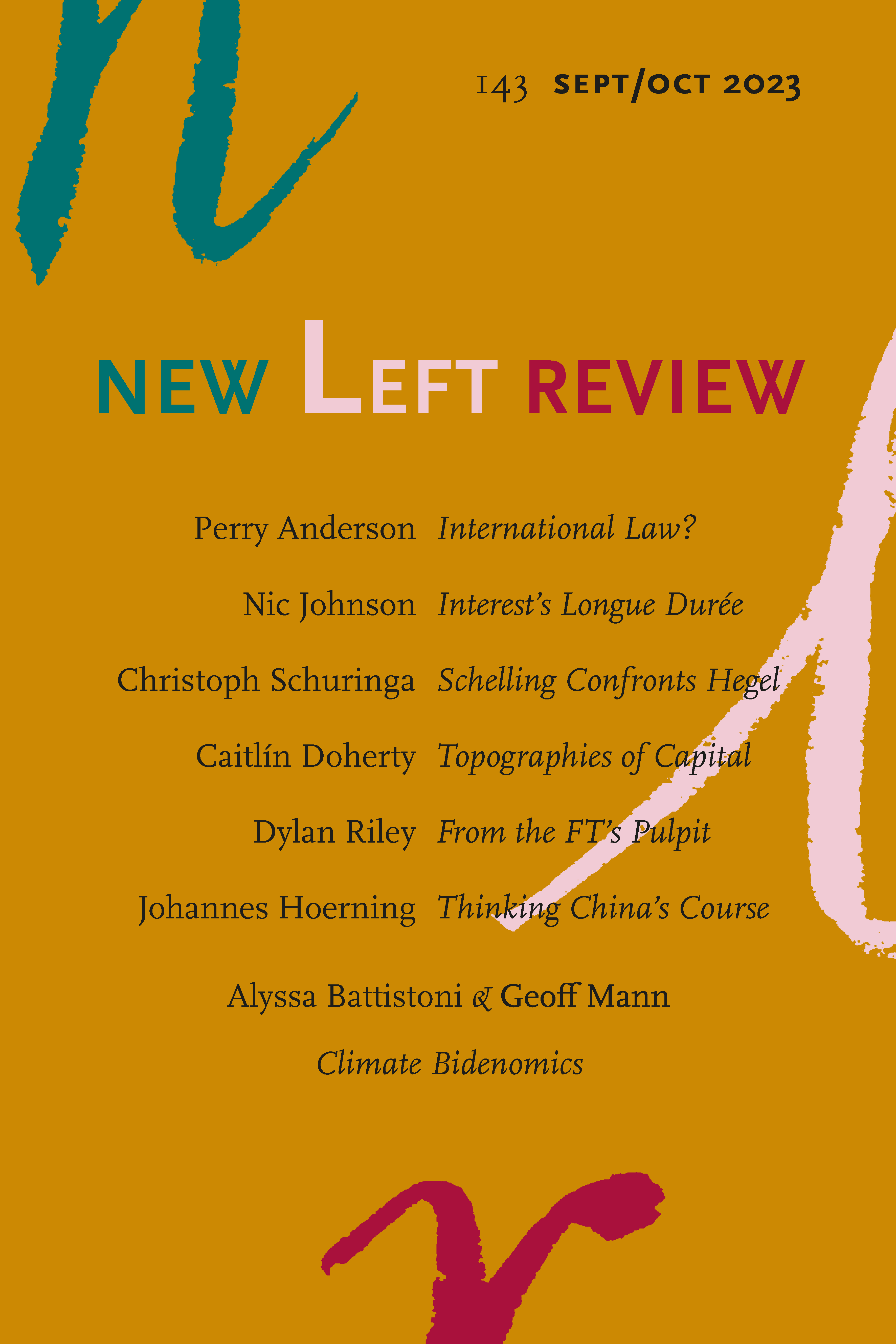A world order governed by the rule of law is the mainstay of the West’s claim to leadership. A host of institutions, topped by the UN itself, lend this principle material form. But what is the juridical nature of international law? History, theory and practice of a powerful hegemonic instrument.
Engagement with the recent work of leading American socialist feminist Nancy Fraser, drawing out continuities between Cannibal Capitalism’s multi-dimensional account of the present conjuncture—encompassing crises of capitalist accumulation, gendered social reproduction, global warming and democratic politics—and Fraser’s earlier theses on recognition, redistribution and representation.
What light do the contradictions of Democratic climate policy throw on the situation of American capitalism today? In reply to Riley and Brenner’s ‘Seven Theses’ (NLR 138), positing a post-growth regime of accumulation with bitterly divided zero-sum politics, Battistoni and Mann see a flawed attempt at a green-growth strategy, its lopsided logic exemplified in the current autoworkers’ strike.
Exploration of the oeuvre of Ci Jiwei, one of the most original social theorists of the contemporary Chinese world. Diagnostics of national consciousness, from Maoist utopianism to a nihilism numbed by consumerist hedonism. Might rising living standards—and the ‘equality of conditions’ already achieved by the Revolution—engender a Polanyian semi-democratization, in the Party’s own interest?
In a striking contribution to the debate on secular stagnation, Nic Johnson examines the longue durée tendency of the rate of interest to fall. From the emergence of public debt in early-modern Europe to the faltering of investment and near-zero or negative real interest rates, running below the rate of inflation. A case for socializing the deployment of capital?
Dylan Riley on Martin Wolf, The Crisis of Democratic Capitalism. The FT’s chief economics commentator blames the imbalances of rentier capitalism, not global trade, for political disaffection with ruling elites.
Christoph Schuringa on Peter Dews, Schelling’s Late Philosophy in Confrontation with Hegel. Lucid study of the relationship between two titanic philosophical systems.
